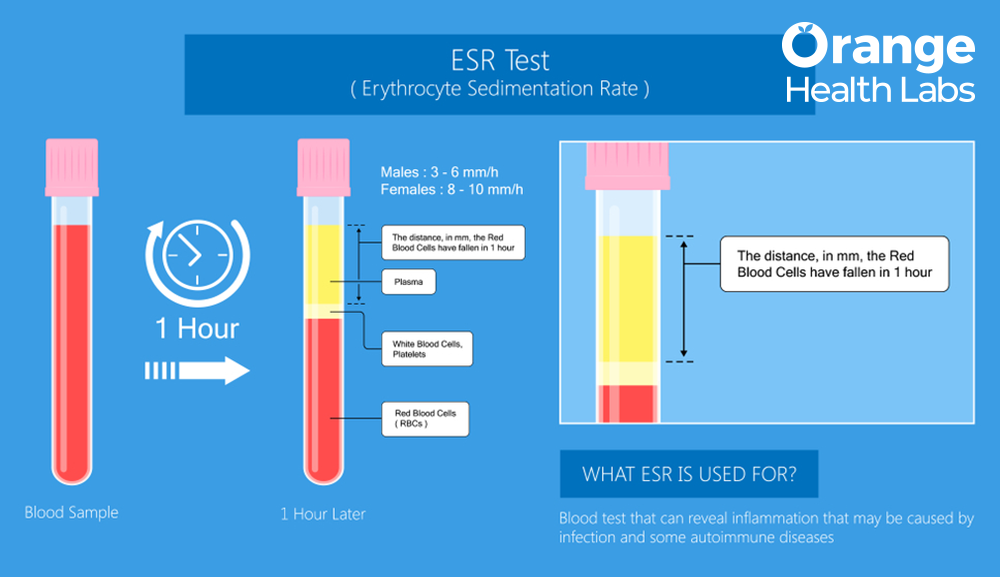Search for tests or checkups
SupportThe Role of Prolactin in the Body: Understanding Its Importance

Prolactin is a vital hormone produced by the pituitary gland, known for its role in breastfeeding and many other functions essential for maintaining balance in the body. It plays a key role in milk production during pregnancy and after delivery, making it a crucial hormone for nursing mothers. Abnormal prolactin levels can indicate various health issues, such as reproductive problems, medication side effects, or pituitary adenomas.
In this blog, we’ll discuss the function of prolactin in the body, the health conditions linked to abnormal levels, and the reasons you might need a Prolactin Test.
Understanding Prolactin: What Does It Do?
Prolactin is primarily recognised for its role in milk production after childbirth. During early pregnancy, prolactin levels rise significantly to prepare the mammary glands for milk production. Prolactin helps the development of alveoli, which are milk-producing structures in the mammary glands. It also promotes the cells in the alveoli to synthesise milk components, such as casein, lipids, and lactose. After delivery, when oestrogen and progesterone levels drop, prolactin becomes more active in the body.
Prolactin and Breastfeeding
When a baby feeds, the suckling stimulates the release of prolactin, which in turn triggers the let-down reflex, releasing milk into the ducts for feeding. This ensures the baby can receive milk while breastfeeding.
Prolactin levels rise in response to nipple stimulation during breastfeeding. When breastfeeding becomes less frequent or inconsistent, prolactin levels decrease, which reduces milk production. Over time, if breastfeeding stops, prolactin levels remain low, eventually causing milk production to stop altogether.
Prolactin's Role Beyond Lactation
However, prolactin’s function is not only limited to lactation. It has a broader impact on various physiological processes, making it an essential hormone for both men and women. Prolactin has anti-inflammatory effects and helps regulate the immune system to defend against infections.
Additionally, prolactin is also involved in metabolism, influencing how the body processes fats and sugars. Studies have shown that it can affect appetite and energy balance, playing a role in weight regulation and metabolic health. This connection between prolactin and metabolism suggests that abnormal prolactin levels might contribute to metabolic disorders like obesity or insulin resistance.
In reproductive health, prolactin interacts with other hormones to influence sexual function and fertility in both men and women. In women, prolactin affects the menstrual cycle, ovulation and fertility, while in men, it can affect testosterone levels, libido and even sperm production.
Monitoring prolactin levels can, therefore, provide insight into various health conditions. For those who wish convenience in testing, a Prolactin Test at Home can be an efficient way to monitor prolactin levels without needing to visit a clinic.
Health Conditions Linked to Abnormal Prolactin Levels
Several factors can cause abnormal prolactin levels. Elevated prolactin may result from medications or conditions like prolactinomas (benign pituitary tumours) and hypothyroidism (underactive thyroid). Lifestyle factors such as physical or emotional stress and fatigue can also impact prolactin levels.
Effects of High Prolactin Levels
High levels of prolactin, known as hyperprolactinemia, can cause various problems. In women, this condition can result in irregular menstrual cycles, the absence of menstruation (amenorrhea), discomfort during intercourse due to vaginal dryness, infertility, and galactorrhoea (milk production from the breast unrelated to lactation or pregnancy). Men may experience sexual dysfunction, low testosterone levels, reduced sperm count and breast enlargement (gynecomastia) due to elevated prolactin.
Aside from reproductive issues, high prolactin levels can contribute to reduced bone density (osteopenia). Some women with high prolactin levels may also show signs of excess male hormones, such as hirsutism (excess hair growth) and acne. Prolactin also influences glucose management, with high levels associated with insulin resistance and glucose intolerance. Individuals with hyperprolactinemia may have more blood sugar control issues than those with normal prolactin levels.
Effects of Low Prolactin Levels
Low prolactin levels can also cause issues, particularly for nursing mothers who may struggle with insufficient milk production. Low prolactin levels, known as hypoprolactinemia, can be a sign of serious pituitary damage. Hypoprolactinemia has been linked to metabolic issues like type 2 diabetes, fatty liver, abnormal cholesterol, fertility problems, sexual issues, and a higher risk of heart disease. It often occurs with other hormone deficiencies due to pituitary damage.
When Should You Test for Prolactin Levels
Testing is essential when you observe symptoms of abnormal prolactin levels. If you are a woman and experience symptoms such as irregular or absent periods, unexpected breast milk production, nipple discharge, or infertility, it may be time to check prolactin levels. Men should look out for symptoms such as erectile dysfunction, enlarged breasts, reduced body and facial hair and low sex drive.
The Prolactin Test in Bangalore is a blood test that measures the amount of prolactin in your blood. The results can help you get a peek at your hormonal health. Early detection of abnormal prolactin levels allows for early management of any underlying health conditions and can prevent serious health complications over time.
Managing Abnormal Prolactin Levels: What You Can Do
Lifestyle factors play a significant role in regulating prolactin levels. If you have abnormal prolactin levels, along with other treatment methods, the following lifestyle changes can help you manage prolactin levels:
- Use stress management techniques, such as deep breathing and meditation: These help lower prolactin levels.
- Get adequate sleep: Poor sleep can lead to reduced levels of prolactin, which has neuroprotective properties. Prolactin levels naturally rise during nighttime sleep; therefore, adequate sleep can help regulate prolactin.
- Opt for a vegetarian diet to naturally lower prolactin levels.
- Avoid high-intensity workouts as they can increase your prolactin levels.
- If you are a breastfeeding mother, consider breastfeeding consistently and pumping to keep your prolactin levels normal.
Prolactin Test Cost is generally affordable but may vary by location and laboratory.
Check Prolactin Test Cost: Prolactin Test cost in Delhi | Prolactin Test cost in Bangalore | Prolactin Test cost in Noida | Prolactin Test cost in Mumbai | Prolactin Test cost in Hyderabad | Prolactin Test cost in Gurgaon
Conclusion
Prolactin is an essential hormone with crucial functions in the body. Monitoring prolactin levels is necessary for both men and women, as testing can help identify health issues early, leading to better management and improved health outcomes.
By understanding the role of prolactin and recognising the signs that may necessitate testing, you can take positive steps toward maintaining your hormonal health.

The Role of Blood Culture Tests in Diagnosing Infections

5 Common Misconceptions About CBC Tests Debunked
